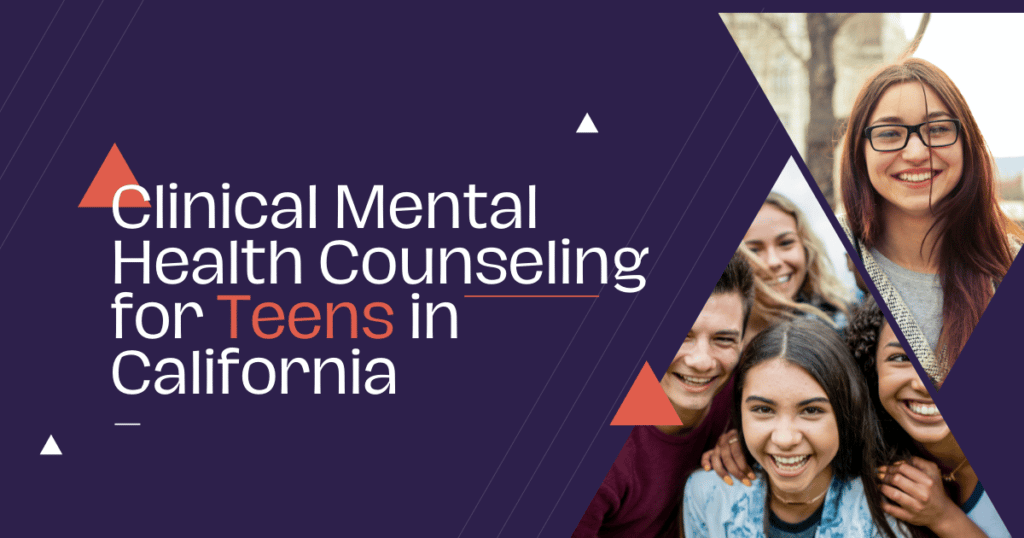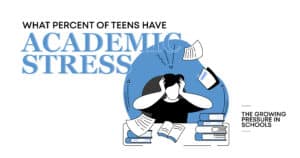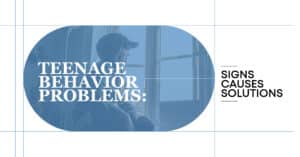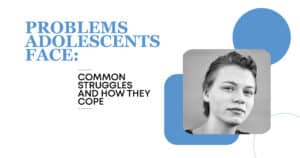According to the latest estimates, a total of 6.1 million young people ages 2 to 17 have gotten treatment for attention deficit hyperactivity disorder (ADHD). Almost 7 percent of teens have been diagnosed with behavioral disorders. Because of this, there is an urgent need for effective adolescent therapies.
By participating in counseling for mental health, teenagers can benefit from learning more about their emotions and the driving forces behind their behaviors. Teenagers often feel perplexed by the range of feelings they’re experiencing and have a strong desire to gain a deeper understanding of who they are.
Counseling for adolescents’ mental health can be invaluable in circumstances like these. During one-on-one or family therapy sessions, therapists help patients and their families develop coping mechanisms for various mental and emotional challenges, including anxiety, stress, grief, and depression. During therapy sessions, they employ methods such as instructing healthy ways of thinking and behavior and teaching skills such as problem-solving.
What is Clinical Mental Health Counseling?
In clinical mental health counseling, teens seeking assistance with life’s most pressing problems work with specially qualified counselors in this field. According to the American Psychological Association (APA), personal problems, as well as issues of a behavioral, marital, emotional, vocational, rehabilitative, educational, or life-stage nature, might be considered to be examples of these types of concerns. In addition, the APA defines mental health counseling services as the assistance rendered by qualified professionals such as psychologists, certified counselors, nurses, and social workers employed by the government or by organizations that provide mental health or social services. Trained professionals make these services available to individuals, families, and organizations.
One way to explain what professional mental health counseling entails is to define it as the process of providing clinical diagnosis and treatment for mental problems.
Forms of Clinical Mental Health Counseling Programs for Teenagers
The three primary forms of clinical mental health counseling programs for teenagers are individual, group, and family-based therapy programs. Individual and group treatment may be combined in some instances. The problem you’re trying to solve will determine the type of therapy you receive. A few tidbits about each one:
Individual Counseling
Individual therapy consists of one-on-one sessions with a therapist where you discuss your issues. About 50 minutes is the average length of time spent in each session. Therapists may urge you to describe your feelings regarding the situation. You may also be given “homework” to assist you in solving the difficulties. Only if the therapist has a solid reason to suspect you might harm yourself or someone else, everything you say in treatment is private. Having your therapist speak with your parents or guidance counselor about a problem can be beneficial occasionally. There are a variety of approaches to one-on-one therapy. These are some examples:
Teenagers who receive talk therapy learn new, healthier ways of thinking and behaving due to exploring and expressing their experiences. Realistic views about oneself replace false or negative ones, which helps individuals avoid dangerous acts.
- Adolescent Dialectical Behavioral Therapy
Teens with BPD(Borderline Personality Disorder) have distorted views of who they are and how they should be. Adolescents with BPD may have difficulty controlling their emotions, leading to feelings of rage, sadness, or worry. Learn to calm down and manage your emotions, as well as build your connections with other people.
Group Counseling
You can observe how other teenagers deal with similar issues in group therapy. You’ll learn new strategies to deal with your issues as well. It can be nerve-wracking to join a new organization since you don’t know anyone else. You’ll probably feel more at ease after a few sessions. Each group has one or two leaders and an average of five participants. The group’s leaders will raise topics and questions. The group, however, is more than happy to address your inquiries. The average length of a group therapy session is 90 minutes.
Family Counseling
Family therapy entails you, your parents, and possibly some or all of your siblings or other family members attending sessions together. Problems affecting the entire family can be addressed because everyone is there. Interruptions will be discouraged, and the therapist will hear everyone’s concerns.
Benefits of Clinical Mental Health Counseling for Teenagers
- It Helps Teenagers Improve Their Ability to Manage Stress and Trauma.
Adolescents with effective coping mechanisms are less likely to resort to unhealthy coping methods like substance misuse or aggression. Teenagers who can cope can take charge of their life’s direction instead of feeling helpless. Teens gain self-assurance and self-esteem as a result of this program. When teens have self-esteem issues, counseling is a good option because it helps them address these difficulties and strengthen their confidence.
- Resolves Issues at Their Source
It helps teenagers identify and address the root causes of their bad behavior. Treatment for teenage mental health concerns such as bullying and substance misuse encourages these young people to make better choices and avoid harmful behavior. Counseling also helps adolescents recognize how their actions affect others and what they can do about it. One of the advantages of this program for teenagers is the ability to set reasonable and realistic goals.
- Enhances Mental Health
School success and positive relationships with family, friends, and coworkers are important for one’s mental well-being A safe environment to focus on one’s own needs rather than the needs of others are provided through mental health counseling for teenagers. Teenagers can also benefit from counseling by discovering their talents, flaws, and areas for improvement.
- Assists With Emotional Well-being.
There is an understanding ear when others can’t be relied upon or trusted. A family member may not understand or be extremely critical of offering assistance if you bring up an adolescent’s issues with them. As a result, when getting clinical mental health treatment, adolescents are more likely to be candid about their issues.
Getting Mental Health Counseling for Teens in California
It should be much simpler for you to get started with clinical mental health counseling now that you are aware of the various advantages associated with it. Teenagers can receive excellent counseling for their mental health at our industry-leading facility in Southern California. To schedule an appointment for today, please give Hillside Horizon for Teens a call at 855-746-8378.





